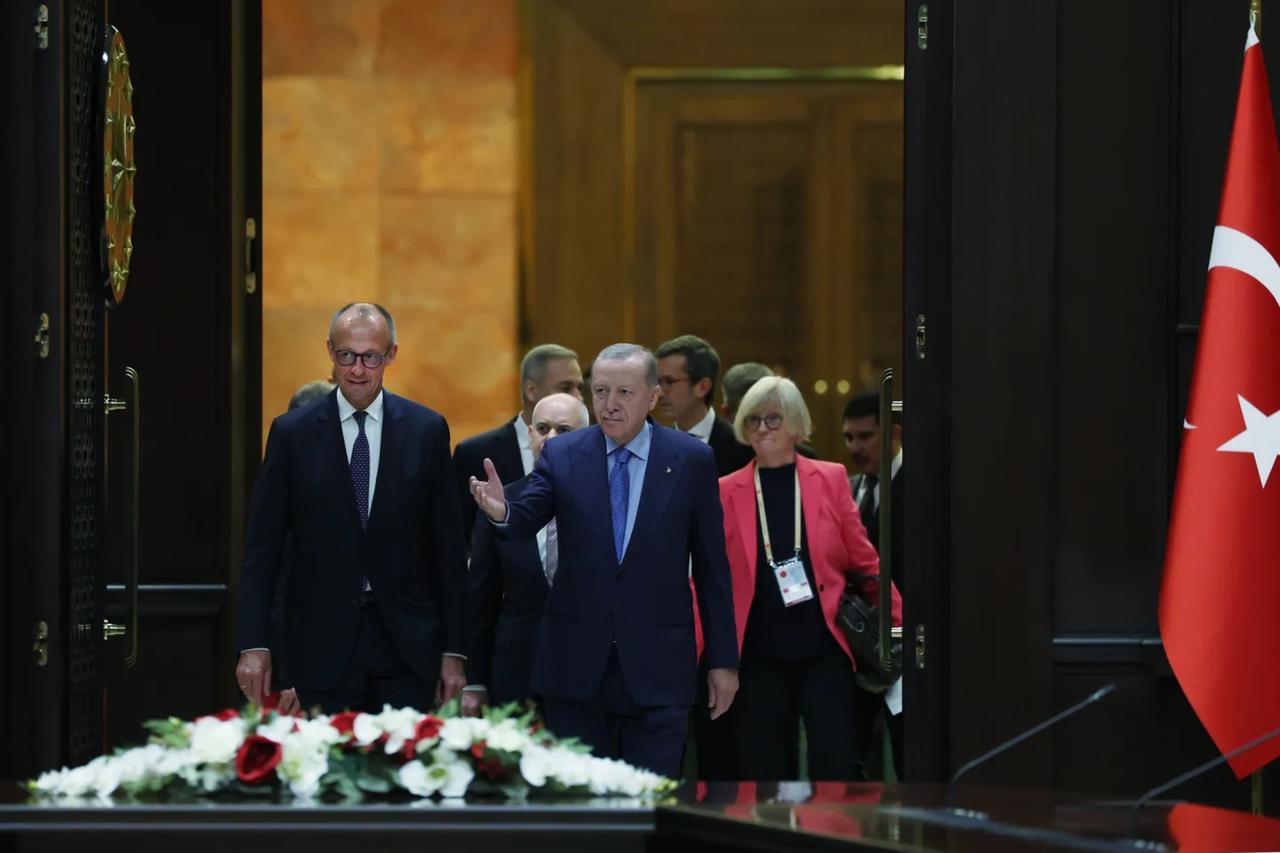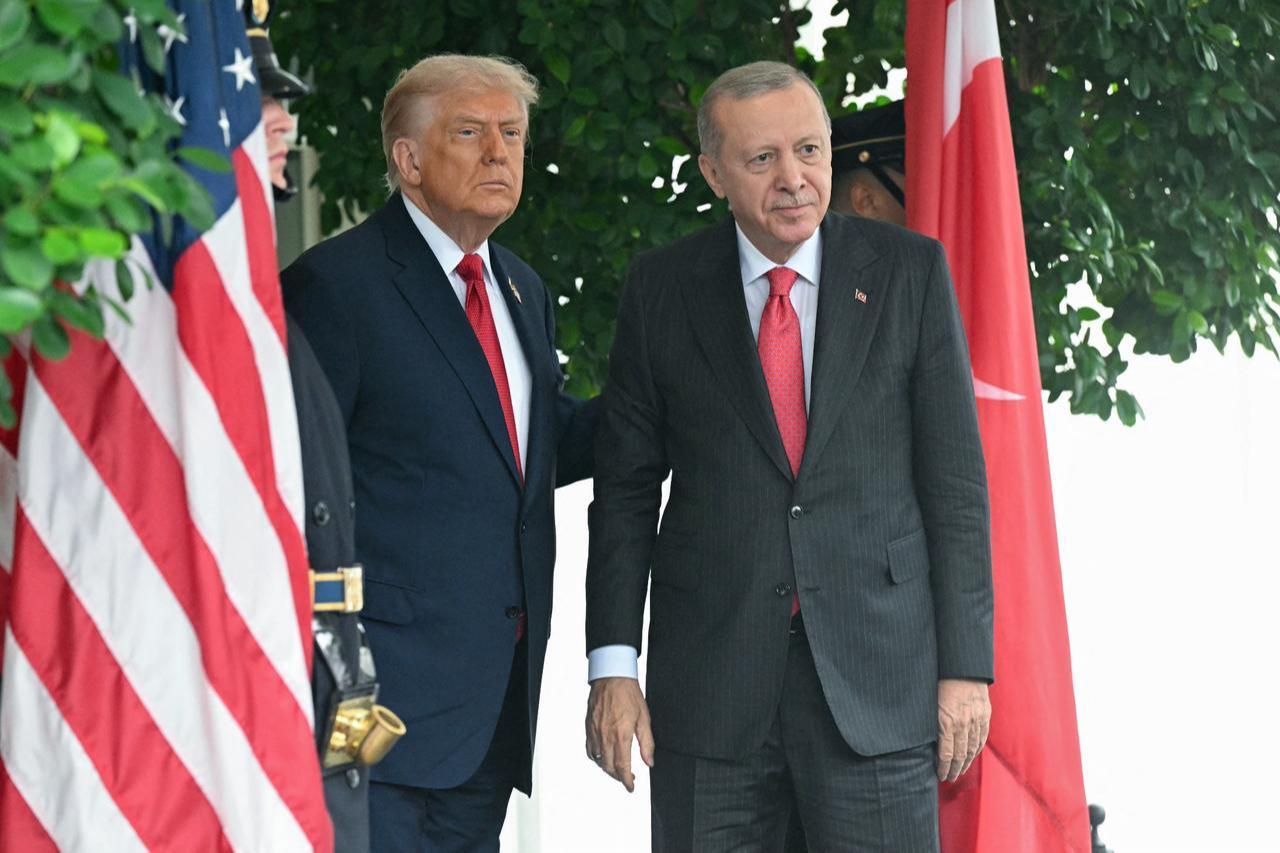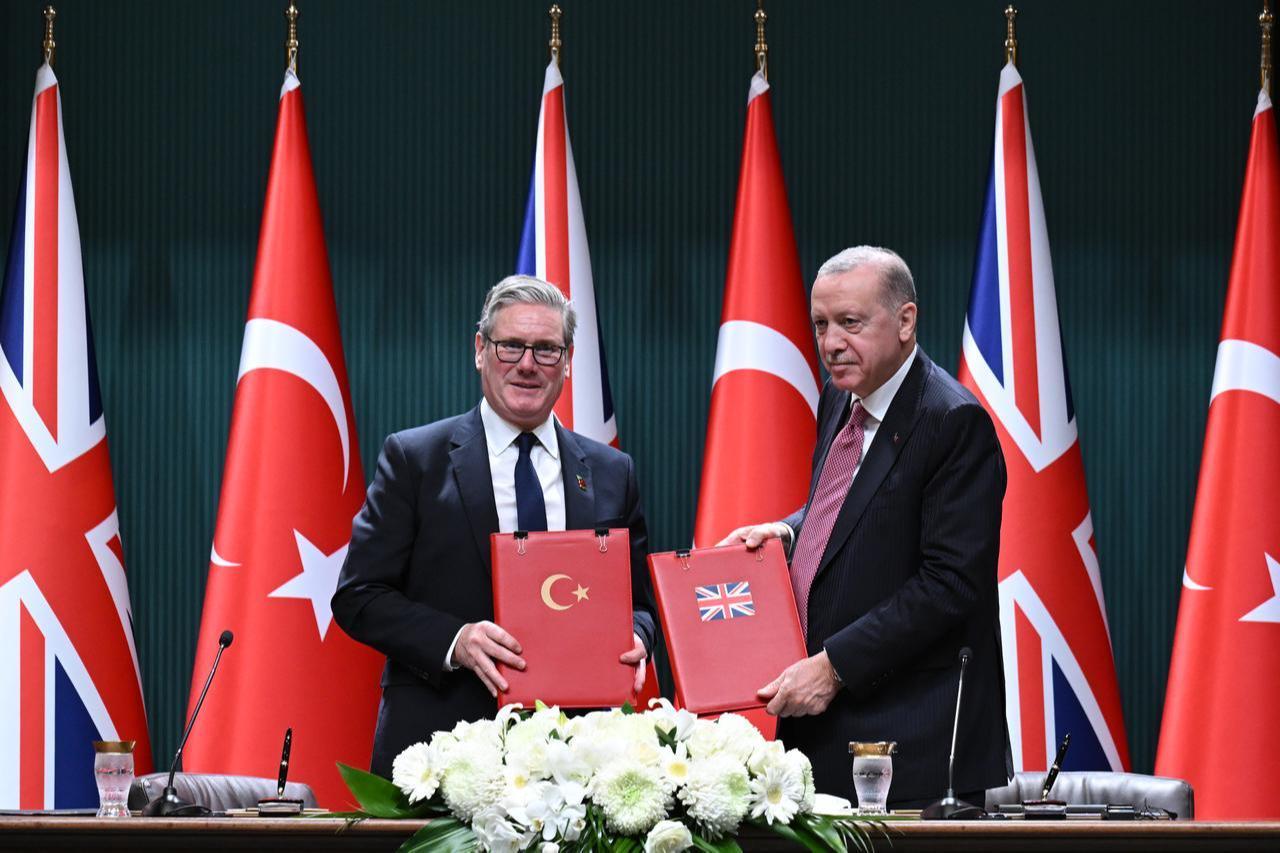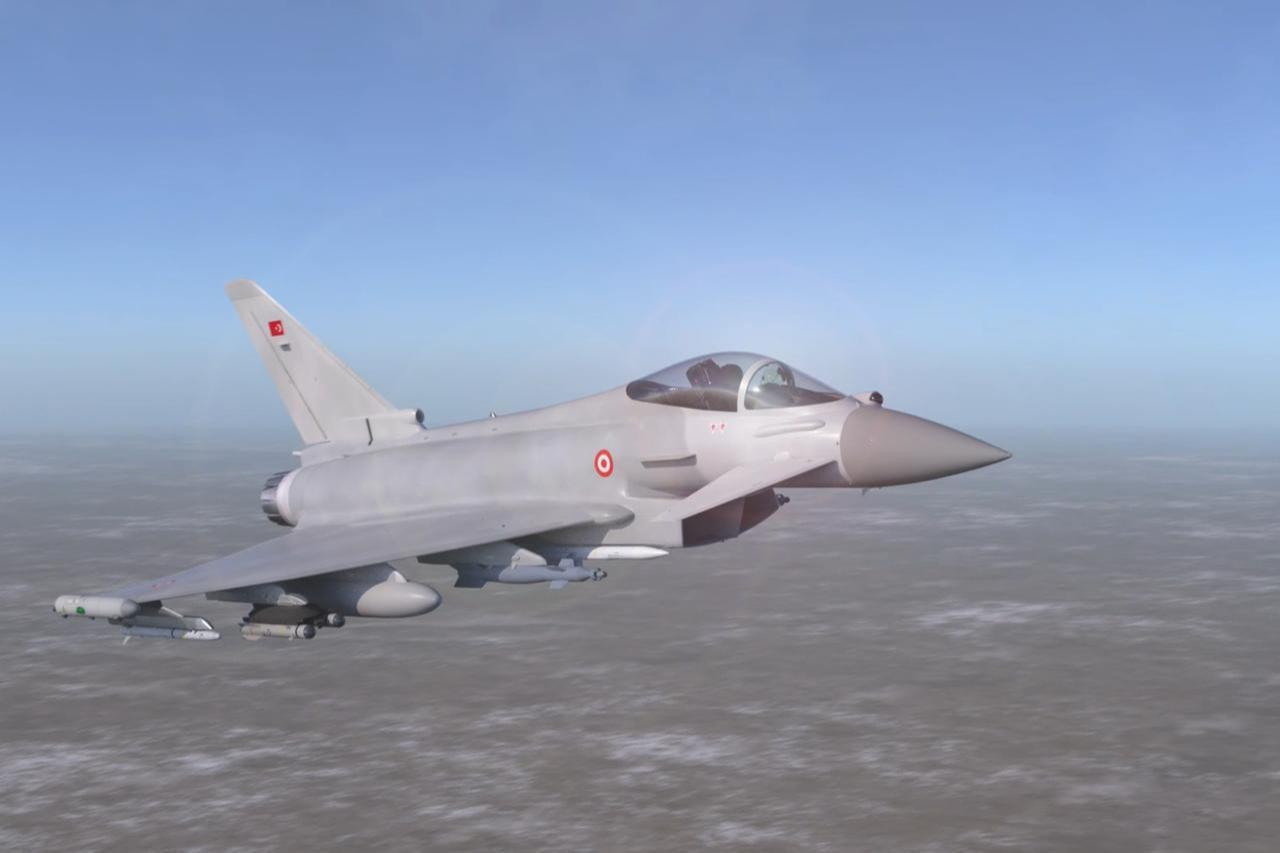
Türkiye’s €9 billion ($10.44 billion) purchase of Eurofighter Typhoons has become a new marker of its growing strategic flexibility with Western partners. The deal, signed this week between President Recep Tayyip Erdogan and British Prime Minister Keir Starmer, will provide Ankara with 20 advanced multirole combat aircraft jointly produced by the U.K., Germany, Italy, and Spain.
Starmer described the agreement as one that will “bolster security across NATO” and strengthen bilateral defense and economic relations. Erdogan called it “a new symbol of the strategic relationship between us as two close allies.” For Britain, the contract represents not just a defense partnership but a major industrial boost—Downing Street said the project will sustain 20,000 jobs across facilities in Edinburgh, Warton, Samlesbury, and Bristol, with deliveries expected by 2030.
Three days later, German Chancellor Friedrich Merz visited Ankara to reinforce Europe’s alignment with Türkiye. His visit coincided with reports that Berlin would back Turkish participation in a proposed European defense initiative, the €150 billion Security Action for Europe (SAFE). The program aims to enhance the EU’s military capabilities while strengthening security cooperation with key partners, such as Türkiye.

The timing of these visits underscores a growing competition between Europe and the United States for influence in Ankara. Both Starmer and Merz arrived roughly a month after President Donald Trump hosted Erdogan in Washington—a meeting that appeared to renew a pragmatic, transactional dynamic between the two leaders.
Trump praised Erdogan’s leadership and sidestepped criticism of Turkish domestic politics, focusing instead on expanding bilateral trade and energy cooperation. The two governments discussed joint projects on civil aviation, nuclear energy, and LNG supplies. A day after their meeting, Turkish Airlines and Boeing announced a massive order for up to 75 787 Dreamliners—a deal expected to support more than 120,000 jobs in the United States.
Analysts say these moves reflect a recalibration in U.S.-Türkiye relations under Trump, who views Erdogan as a key regional actor. According to Carnegie Europe fellow Marc Pierini, Trump’s endorsement of the Boeing sale “signals an effort to disconnect Türkiye from Russian oil—and perhaps gas as well.”
For Europe, this deepening U.S.-Türkiye rapport represents both a challenge and an incentive. The Starmer and Merz visits were widely seen as an attempt to balance Trump’s growing personal and strategic influence on Erdogan by offering tangible economic and defense cooperation from the EU side.

Former Istanbul mayor Ekrem Imamoglu—widely seen as Erdogan’s likely challenger in 2028—was jailed in March and faced new “espionage” charges on the very day the Eurofighter deal was announced.
While the visits strengthened economic and military cooperation, they drew attention to whether the EU's locomotive chancellor would criticize ongoing political developments in Türkiye, and he almost didn’t.
Merz, standing beside Erdogan in Ankara, acknowledged that “decisions have been made in Türkiye that do not yet meet the requirements regarding the rule of law and democracy,” but refrained from direct criticism of Imamoglu’s imprisonment.
Starmer made no public mention of the issue.
Türkiye’s distancing from the European Union no longer stems from unmet Copenhagen criteria, but from what might be called Draghi realities: a recognition that Europe’s economic and digital dynamism has faded. While EU officials continue to invoke democracy and rule-of-law benchmarks, Ankara’s decision-making today is driven by pragmatic calculations about technology, capital, and competitiveness—not accession ideals.
During the Future Investment Initiative (FII) forum in Riyadh on Oct. 28, Turkish Finance Minister Mehmet Simsek underlined this shift. Speaking on a panel titled “Balancing Sovereignty and Globalization,” he noted that Türkiye has not joined the EU’s Digital Markets Act, preferring to “see what works first.”
Among many examples, while Ankara tries to set its own course in most matters, where it cannot, it tries to follow the U.S. model rather than Europe's. For this reason, it also tries to maintain good relations with the U.S.

The renewed push for economic engagement with Türkiye also reflects domestic political pressures in Europe. With stagnant growth—0.3% in the U.K. and zero in Germany—both Starmer and Merz are eager to stimulate industrial activity and demonstrate foreign policy pragmatism amid rising populist challenges at home from Reform UK and Alternative for Germany (AfD).
For the U.K., the Eurofighter deal provides a lifeline to the defense manufacturing sector, led by BAE Systems, which produces nearly 37% of each Typhoon aircraft. BAE’s chief executive Charles Woodburn described the agreement as “a new chapter in our longstanding relationship with Türkiye,” adding that the defense investment “can fuel significant economic growth and returns across the U.K.”
Similarly, Berlin’s support for Ankara’s potential inclusion in SAFE signals an acknowledgment that Türkiye’s defense and industrial capacity remains vital to Europe’s broader strategic autonomy agenda.
The Eurofighter deal inevitably revives the question of whether Türkiye’s expanding European defense ties could pave the way for its reentry into the U.S.-led F-35 program—or the easing of sanctions imposed under the Countering America’s Adversaries Through Sanctions Act (CAATSA).
Türkiye was removed from the F-35 program in 2019 after purchasing Russia’s S-400 air defense system, which was at least the reason given. Washington cited security concerns over the potential exposure of classified F-35 technology to Moscow. Ankara has maintained its refusal to abandon the S-400 system, as the allies couldn’t afford to provide any alternative repeatedly.
Erdogan said earlier this month that he hoped “the F-35 issue will be resolved,” calling his meeting with Trump “the beginning of a new era in Turkish-U.S. relations.”
The Eurofighter acquisition, while not equivalent to the F-35 in stealth capability, signals Ankara’s intent to diversify its defense partnerships and avoid dependence on a single supplier. It also strengthens its hand in future negotiations with Washington by demonstrating that Türkiye retains alternatives within NATO’s own defense industry.